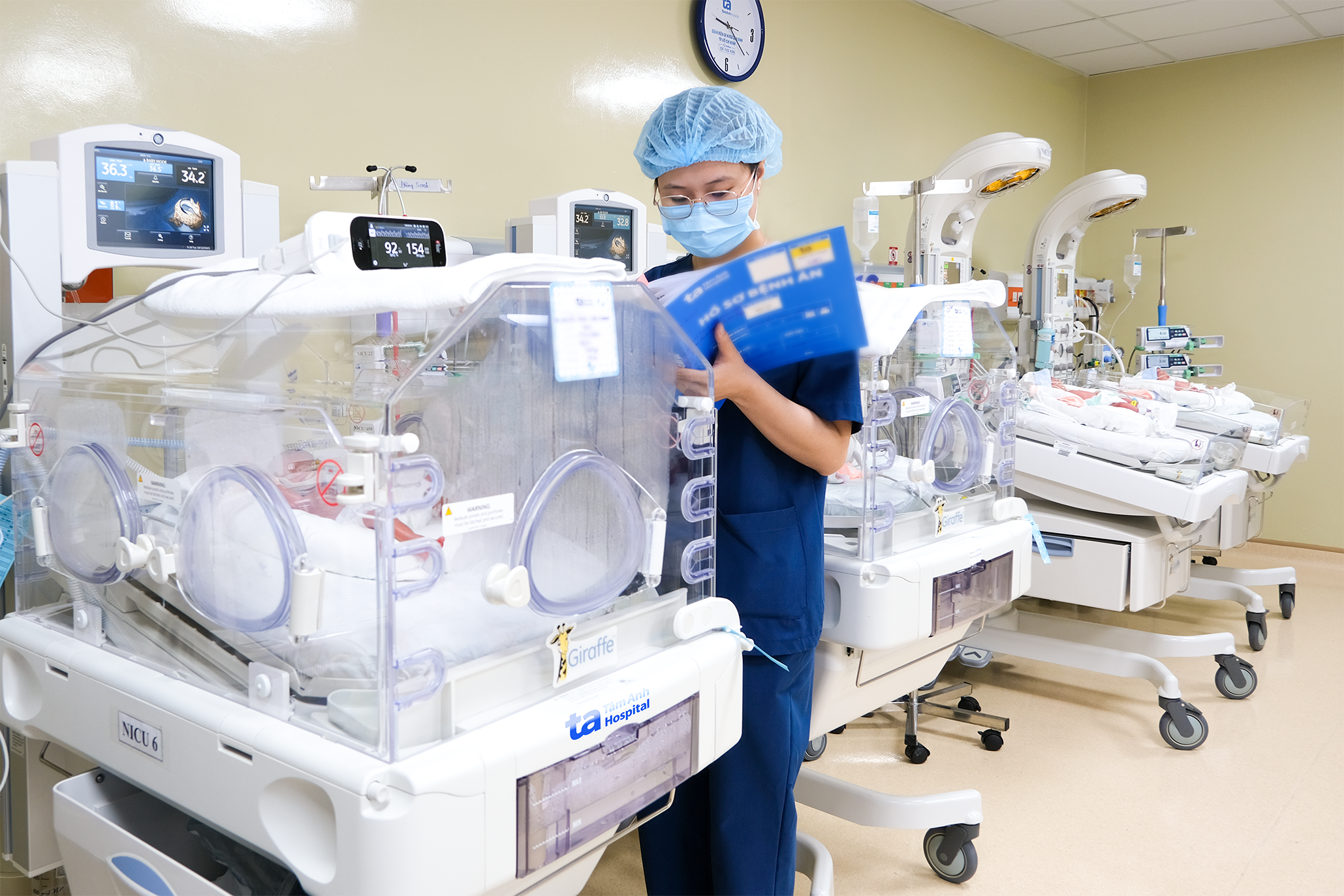Immediately after birth, doctors resuscitated the baby, providing warmth with a specialized thermal bag and non-invasive respiratory support (CPAP). Once his vital signs stabilized, he was transferred to the Neonatal Intensive Care Unit (NICU) at Tam Anh General Hospital in Ho Chi Minh City, where he was placed in an incubator.
Dr. Nguyen Thi Anh Thu from the Neonatal Center explained that due to his extreme prematurity, the baby suffered from respiratory distress syndrome and received respiratory support through nasal continuous positive airway pressure. Because he could breathe on his own with minimal oxygen support, surfactant wasn't necessary. The medical team provided intravenous nutrition through a central line combined with early milk feeding. After 10 days, he transitioned to full milk feeding. He experienced episodes of apnea and was given caffeine to stimulate his respiratory center and reduce these episodes.
To promote heart rate, breathing, and temperature regulation, and to reduce the risk of mortality, the mother was allowed into the NICU to interact skin-to-skin with her baby for an hour each day, starting in the first week after birth. A month later, the baby transitioned to low-flow oxygen.
Due to his premature birth, the baby's PDA, which normally closes within 48-72 hours after birth in full-term babies, remained open and measured about 2.7 mm. A PDA is a normal part of the fetal circulatory system. In premature infants, closure can be delayed, potentially causing hemodynamic disturbances and various complications.
A PDA allows blood to flow directly from the aorta to the pulmonary artery, increasing blood flow to the pulmonary circulation and the amount of blood returning to the left side of the heart. In cases of a large PDA, pulmonary blood flow increases significantly, putting the infant at risk of heart failure if not treated promptly.
Doctors closed the baby's PDA 4 times using medical intervention, reducing its size to 1.5 mm, eliminating the need for surgery. The baby also received phototherapy (blue light) for jaundice.
The baby received a monoclonal antibody injection to prevent RSV (respiratory syncytial virus), as well as vaccines for tuberculosis and hepatitis. His health indicators stabilized, he reached a weight of over 2.8 kg, and he didn't require any blood transfusions during treatment. He was discharged and will have regular follow-up appointments to monitor his developmental milestones and the closure of the PDA, allowing for timely intervention if needed.
 |
Premature babies are nurtured in incubators at the NICU. Photo illustration: *Tam Anh General Hospital* |
According to Dr. Cam Ngoc Phuong, Director of the Neonatal Center at Tam Anh General Hospital in Ho Chi Minh City, caring for and treating premature babies is a significant challenge in neonatal resuscitation due to the high risk of complications and mortality, especially for extremely premature infants (born before 28 weeks of gestation). The "golden hour" protocol for managing and providing emergency care for extremely premature infants immediately after birth helps minimize complications and long-term effects, giving them a chance to survive and develop normally.
Dr. Phuong advises pregnant women with signs of premature labor to choose a hospital with a specialized department for premature infant care, as the first 60 minutes after birth and the first 28 days are crucial for the baby's survival.
Ngoc Chau
| Readers can submit questions about children's health here for doctors to answer. |












